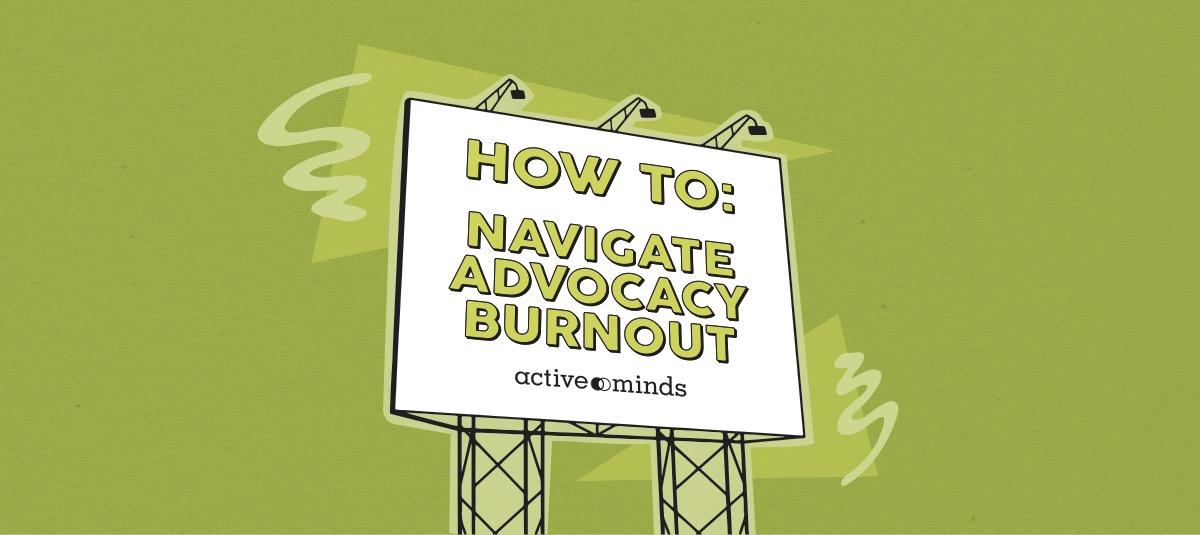Gen Z is no stranger to advocacy. But what happens when mental and physical commitment to a cause becomes too much? This is called advocacy burnout.
Earth Day elevates climate and environmental concerns to the top of mind. Many honor the day through participation in outdoor clean-ups, donating to environment-focused organizations, and resharing educational content on social media. However, many advocate beyond days of observation by staying informed and taking action throughout the year. Advocacy plays a critical role in shaping a better world, however, it can often lead to advocacy burnout.
What is advocacy burnout?
Advocacy burnout is a state of emotional, mental, and physical exhaustion brought on by stress from advocacy. Advocacy burnout shows up differently for everyone. Commonly, it can look like feelings of helplessness, frustration, and fatigue, as well as difficulty carrying on with advocacy efforts. Often, advocacy burnout can uplift other emotions. For example, Earth Day may raise feelings of climate anxiety. Similarly, elections can result in feelings of anxiousness as well. If you are actively and civically engaged, it’s important to take note of these common signs and prioritize your mental health.
How does advocacy burnout impact Gen Z?
It’s no secret that Gen Z is highly invested in current events and the state of our world. Not only are we interested in these pressing topics, we are committed to taking action. According to EdWeek, “The percentage of people aged 18-29 who vote in midterm elections has risen since the oldest members of Gen Z came of age.”
The increased discourse and participation in civic engagement makes advocacy burnout very probable, especially for Gen Z. Advocacy isn’t compartmentalized from the rest of our lives rather it is integrated. BBC shares, “They’re the most likely generation to boycott a product, company, country or state because of a political, social or environmental stance, which extends to how they pick employers, too. Just one in five would work for a company that fails to share their values.” Because values are so integral to how Gen Z lives, it’s important to meet them where they are and uplift resources. Want to learn which mental health career is right for you? Check out Cause + Career.
Why community support is key
Gen Z is a largely community-driven generation. We see youth and young adults rallying together, supporting key issues, and ensuring their voices are heard. Community is important to Gen Z, making it even more critical when handling advocacy burnout.
Here are some opportunities to connect with a community of advocates:
- Regarding advocating for mental health and adjacent topics, the Active Minds Chapter Network fosters a community of transparency and support. Chapters can be found all over the country in the K-12 setting as well as in colleges and universities.
- Exploring volunteer opportunities in your community for causes you care about is another way to connect with a community of advocates.
- Crafting moments of motivation is critical when remembering why you’re advocating in the first place. Engaging in an open conversation about key issues or bringing a speaker to your community can help reignite that spark that often fades with advocacy burnout.
- Following social media accounts or subscribing to newsletters with communities of like-minded peers can support you in feeling supported and validated.
- Mental Health Advocacy Academy is another great way for BIPOC and LGBTQ+ high school students to focus on civic-minded, passion projects alongside a group of peers.
With critical dates and events like Earth Day, Mental Health Action Day, and Election Day, it’s important to remember that we can’t pour from an empty cup. Caring for yourself and your mental health supports you in better advocating for causes you are passionate about and is an act of advocacy.




